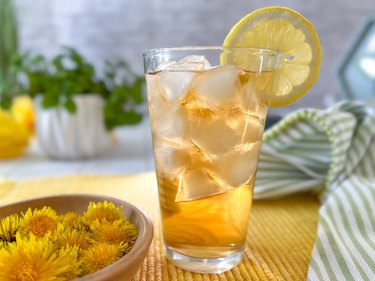
Ah, spring! It's the season when our backyards transform into a bustling metropolis of greenery and, let's be honest, what some might call "weeds." But what if we told you that among those uninvited garden guests lies a hidden gem just waiting to be transformed into your new favorite beverage? Yes, we're talking about the humble dandelion.
Before you start plotting their demise, consider this: Those bright yellow blooms and their green companions are not just a feast for the eyes but can also be the main ingredient in a delicious, detoxifying dandelion tea. So, why not embrace the wild side of your garden and join us on a culinary adventure that turns these overlooked "weeds" into a pot of gold? Let's brew up some magic with dandelion tea and give those springtime sprouts a purpose beyond frustrating gardeners and piquing the curiosity of bees.
Video of the Day
Video: Dandelion Tea
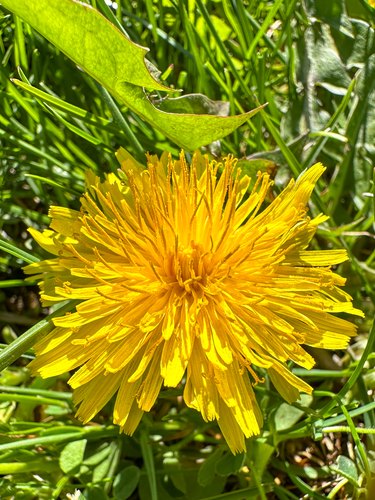
Things You'll Need
5 or 6 fresh dandelion flowers
Tea ball
Hot water
Honey and lemon (optional)
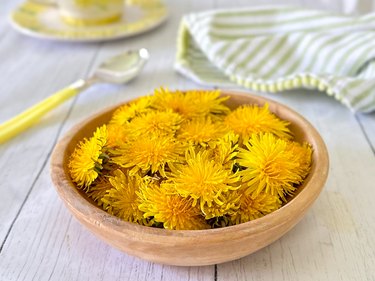
Pick and Prepare Dandelion Flowers
Pick three or four fresh, pesticide-free dandelion blooms. Remove the petals and place them into a tea ball or a reusable tea bag.
Tip
When incorporating dandelion flowers into your diet, there are a few things to bear in mind:
- Always harvest them from areas that are free of pesticides and other chemical contaminants.
- Some people may have allergies to dandelions, so it's wise to start with a small amount if you're trying them for the first time.
- Be cautious if you have certain medical conditions or are taking medications that may interact with dandelion. As with any new food or supplement, it's always a good idea to consult with a health care professional if you have any concerns.
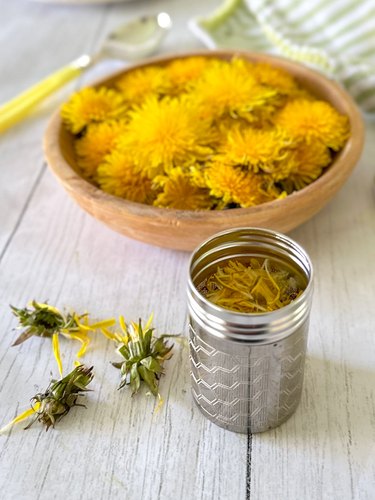
How To Brew Hot Dandelion Tea
For those of you who love to kickstart your mornings with a hot cup of tea or find comfort in warming up on a brisk afternoon, dandelion tea offers not just a delightful taste but also a wealth of nutrition. Dandelions are packed with folate; calcium; potassium; and vitamins A, C, and K along with a high level of beta-carotene that aids in protecting cells from damage.
To enjoy a comforting cup of hot dandelion tea, simply steep a tea ball filled with dandelion petals in hot water for a few minutes. You can savor it as is or enhance its natural sweetness with a spoonful of dandelion honey or your usual honey.
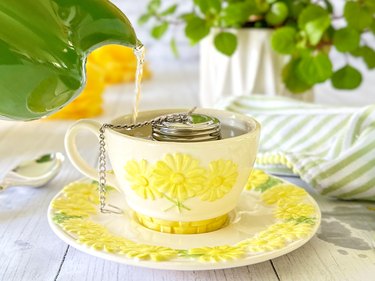
How To Brew Iced Dandelion Tea
If you're more inclined toward iced tea, simply infuse boiling water over a tea ball filled with dandelion petals in a glass jar. Allow the tea to steep until it cools to room temperature. Then, serve it over a glass of ice and finish with a splash of fresh lemon juice for a refreshing drink perfect for hot summer afternoons.
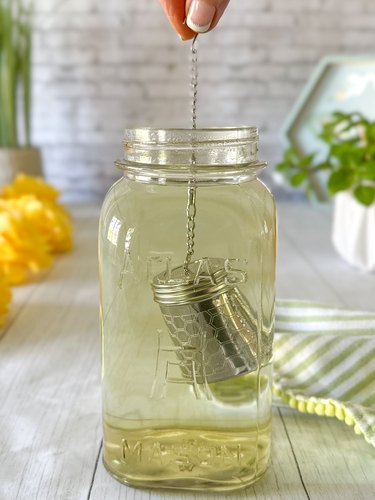

Explore the other parts of the dandelion for even more benefits!
While the delicate yellow petals of dandelions make for a subtly sweet and enchanting tea, both hot and cold, the adventure into dandelion brews doesn't end there. Venturing below the surface and into the foliage can elevate your tea experience to new earthy heights. The roots and leaves of the dandelion plant offer a rich tapestry of flavors and benefits that are too valuable to overlook.
Dandelion roots, when harvested, cleaned, and dried, can be roasted to create a tea with a deep, robust flavor that echoes the comforting warmth of a dark roast coffee, making it an excellent choice for those seeking a caffeine-free alternative with a detoxifying kick. On the other hand, the green leaves, tender and nutrient-packed, can be steeped fresh or dried to produce a tea that is lighter than its root-based counterpart but equally invigorating, with a slightly bitter yet refreshing taste that is perfect for a gentle cleanse.